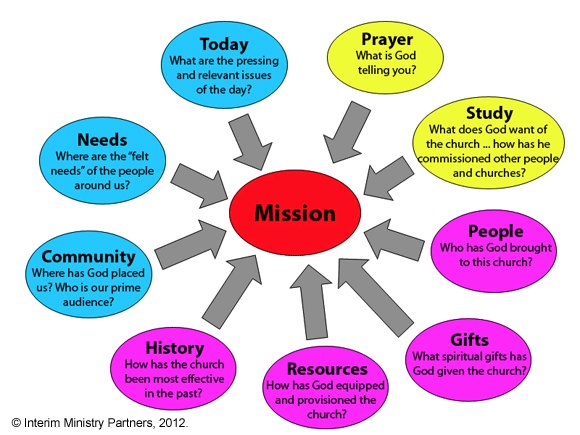I’ve heard preachers make that statement. Elders too. I’ve even heard unbelievers make the same observation. With the former it is almost always said “tongue in cheek.” With the latter; not so much.
 People are capable of wonderful things. When I think about what humankind has accomplished over the millennia, I am humbled, awed, and inspired. People are also capable of horrific things. When I think of what mankind has destroyed over the millennia, I am saddened, baffled, and depressed.
People are capable of wonderful things. When I think about what humankind has accomplished over the millennia, I am humbled, awed, and inspired. People are also capable of horrific things. When I think of what mankind has destroyed over the millennia, I am saddened, baffled, and depressed.
Churches are not immune from these extremes of humanity. The Lord has raised up amazing men and women of faith over the centuries. To the degree that those individuals have blessed countless lives, there have been others whose efforts have been equally destructive.
This is not a new phenomenon. The apostle Paul, for example, lauded various churches, groups, and individuals who not only grasped the meaning of the gospel — but also lived it out in both community and culture. On the other hand, he openly condemned those who used the gospel for personal power plays, Christ plus theology, and willful sinful behavior.
There’s no way around it. When we talk mission, we must include people in the equation. And that makes developing a mission statement puzzling, but living it out even more challenging. There are many reasons why this is the case, but here are a handful that leaderships must consider when discerning the means by which a church will carry out its vision:
Choose the proper tools:
 No builder begins constructing a house unless he or she has the right tools. Churches should beware of diving into major decisions without utilizing the proper tools. Spiritual tools such as prayer, study, devotion, worship, fasting, etc., are all spiritual disciplines that prepare the heart and mind for transformation. There are also practical tools that have been created by those who have a heart for developing mature leaders and leaderships. Hope Network Partner, Dr. Grady King, has developed an outstanding resource for churches that are in the process of prayerfully considering major decisions. To access the resource, please click the following link: The Practice of Communal Discernment.
No builder begins constructing a house unless he or she has the right tools. Churches should beware of diving into major decisions without utilizing the proper tools. Spiritual tools such as prayer, study, devotion, worship, fasting, etc., are all spiritual disciplines that prepare the heart and mind for transformation. There are also practical tools that have been created by those who have a heart for developing mature leaders and leaderships. Hope Network Partner, Dr. Grady King, has developed an outstanding resource for churches that are in the process of prayerfully considering major decisions. To access the resource, please click the following link: The Practice of Communal Discernment.
Beware of coalitions and self-appointed messiahs:
On a beach headed to Jerusalem, the apostle Paul is preparing a church for a season of interim when he would no longer be with them (Acts 20:13-38). He counsels the elders at Ephesus, “Even from your own number men will arise and distort the truth in order to draw away disciples after them” (Acts 20:30). During a season of interim, churches are particularly vulnerable to those who feel they are appointed by God to “keep the church on the right track.” Self-appointed messiahs must be lovingly confronted and not be allowed to use ungodly means to a perceived gospel end. Prayer and discernment on how to deal with naysayers are critical during the mission forming process. In other words, when discerning God’s call for your church’s future — decide in advance how you will respond to those who feel that they have the “real truth.” When they come — and they will — respond consistently and lovingly and with a united message.
Involve “evident fruit” people in the process:
 Hopefully, your church is filled with individuals who love God and love one another. These individuals should be easily identifiable by the fruit of the Spirit that is evident in them. Who in your church is loving, gentle, patient, good, and in self-control? Create avenues of listening to them. Pray with them. Seek their input. In other words, go to those in your church in whom you already see the Spirit of God at work. This will not always be easy, because some people who bear the most significant fruit serve quietly and draw very little attention to their ministry.
Hopefully, your church is filled with individuals who love God and love one another. These individuals should be easily identifiable by the fruit of the Spirit that is evident in them. Who in your church is loving, gentle, patient, good, and in self-control? Create avenues of listening to them. Pray with them. Seek their input. In other words, go to those in your church in whom you already see the Spirit of God at work. This will not always be easy, because some people who bear the most significant fruit serve quietly and draw very little attention to their ministry.
These three suggestions are by no means an exhaustive list. There are many more things we can do to prepare and involve people in the process of mission formation and implementation. Please use the comments section below to “keep the conversation going!” or email us: Questions@InterimMinistryPartners.com.
This is part of an ongoing series of messages from the partners at Interim Ministry Partners on a church discovering its mission. These messages are based on a proven set of moves a congregation needs to make as it is transitioning in its preaching leadership and wants to focus on its mission. The following chart illustrates the key moves and the direction each of these moves should help the congregation move.











Reader Comments
Archived Facebook Comments